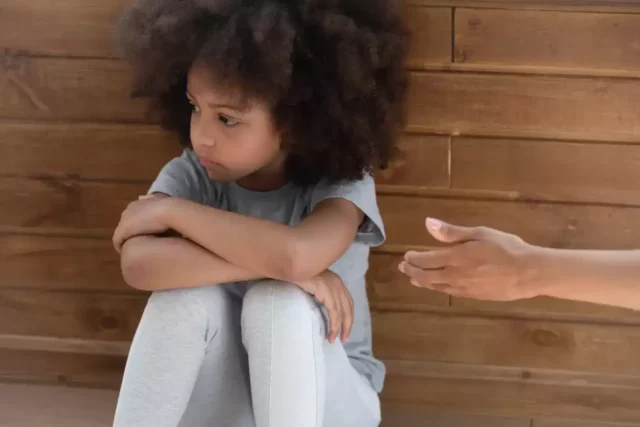
If you have decided that you want to become a foster carer and open your home to a child in need, it’s crucial to understand and address the traumatic experiences that many foster children have been through. Many foster children will have come from backgrounds where they have experienced significant trauma, which led to them being placed in foster care. As a foster carer, you may be looking after a child who has been through abuse and neglect. In some cases, foster children may not have been abused or neglected, but the instability of their situation and being separated from their family can be a traumatic experience by itself.
The trauma that these children have experienced can have a significant impact on their emotional, physical, and mental health. It can impact their ability to form attachments and have healthy relationships and friendships.
Keep reading to explore some of the common traumatic experiences faced by foster children, along with some strategies and tips that foster carers might find helpful when it comes to supporting these children to heal and thrive.

The Impact of Trauma on Foster Children
Trauma can have a significant impact on the development and well-being of foster children. When children go through traumatic experiences, it can cause serious disruption to their sense of security and safety, along with having an impact on the way that they regulate their behaviours and emotions. This can, in turn, cause a range of physical and mental health disorders and problems, including depression, anxiety, and post-traumatic stress disorder (PTSD).
Foster children who are traumatised may also have problems with forming attachments and relationships. They may express difficulty when it comes to trusting people, especially adults. This is important for foster carers to be aware of, as you need to provide a safe and nurturing environment for the child. It can sometimes be disheartening to do everything you can for a child who struggles to trust you, but it’s important to not take it personally, and persevere. Over time, you can break down barriers and help them heal.
If you feel called to help a child who has experienced trauma, you can find out more about how to become a foster carer at thefca.co.uk. Once you apply, you will also get access to resources, education, and training to help you become more trauma-informed and provide the best possible care to your foster child.
Understanding Trauma in Foster Children
It’s important to understand the types of trauma that foster children may have experienced in order to effectively address the trauma and the impact it has on them. Some common traumatic experiences that foster children may have been through include:
- Abuse: Physical, emotional, or sexual abuse can have a lasting negative impact on foster children, all the way through to childhood. It can lead to challenges with emotions and behaviour, and it can also have a significant negative effect on their mental health and wellbeing.
- Neglect: Foster children may have experienced neglect, including inadequate access to food, shelter, and medical care. Neglect can lead to mental health problems, physical illnesses, and cause difficulties with forming attachments.
- Separation from family: Being separated from their biological family, even when in their best interests, can be a traumatic experience for a child. It may have an impact on their self-esteem, and their ability to form attachments and relationships with others.
- Instability: Foster children may have been moved around a lot between different homes and schools, which can cause disruptions to their sense of safety and security.

Addressing Trauma in Foster Children and Helping Them Overcome It
As a foster carer, there are several strategies that you can use to help your foster child address their traumatic experiences and start to heal from their past. It’s important to remember that healing from trauma is possible, but for this to happen, it’s crucial that the child is in the right environment and surrounded by safe, supportive people.
- Provide a safe, nurturing environment: As a foster carer, your main aim should be to provide a safe, nurturing environment for the foster child. This includes providing consistent routines and putting clear boundaries in place, along with providing physical comfort and safety.
- Build trust and relationships: While it may take time, it’s important to focus on working to build trust and a positive relationship with your foster child. This is crucial when it comes to addressing any attachment and trust issues that they may have developed.
- Seek professional support: Foster carers should seek professional support for their foster child, including therapy and counselling, to help them address and heal from their trauma. Play therapy or art therapy can be especially useful for kids who may find it difficult to talk about what they have been through.
- Use trauma-informed parenting techniques: It’s important that you use trauma-informed parenting techniques, such as gentle parenting, when interacting with your foster child. You should strive to understand the impact of trauma on children, use positive reinforcement, and find suitable conflict resolution strategies.
- Be curious: Instead of simply assuming a child is acting up, foster carers should get curious about the inner mind of their foster child and make the effort to understand why they are behaving a certain way. More often than not, it may be due to their past experiences, and helping them make sense of how they feel is the first step to addressing their actions.
- Encourage self-expression: Foster children who have been through trauma may struggle with expressing their feelings in a healthy way. It’s important to provide them with safe and healthy outlets, such as art, gaming, or exercise, that allow them to express their emotions and get big feelings out in a safe, supportive environment.

If you want to become a foster carer, it’s important that you have a clear idea of what it involves. Often, it means caring for a child who has been through some significant traumatic experiences that have impacted their lives. By providing the right environment and support, you can be a turning point in their lives, allowing them to heal and thrive.









